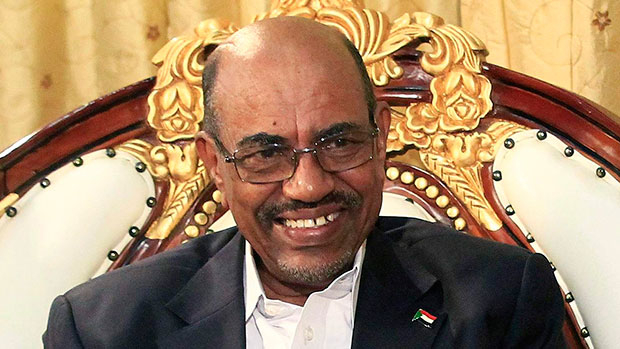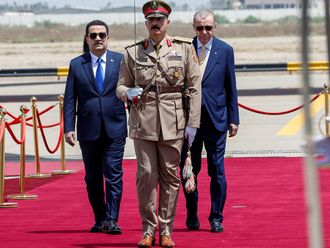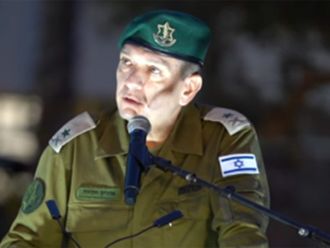
United Nations: Sudan’s President Omar Bashir, who faces international war crimes and genocide charges, is on a provisional list of speakers at a UN summit of world leaders in late September. If he speaks, Bashir would be the first head of state to address the General Assembly while facing charges by the International Criminal Court.
UN spokesman Farhan Haq told reporters Tuesday that Secretary-General Ban Ki-moon has said all UN member states have to take ICC warrants “seriously.”
Bashir was also scheduled to speak at the General Assembly’s annual ministerial meeting in September 2013 but the government cancelled his appearance.
The United States made it clear then that it did not want Bashir to show up in New York, and human rights groups had warned they would seek legal action against him if he arrived.
Under a US treaty with the United Nations dating to 1947, Washington is obligated to issue the visa as the world body’s host country. The United States has never banned a visiting head of state who wants to speak to the United Nations.
“We’ve been very clear how we feel about the president of Sudan and that he’s wanted for crimes, and we want to see him held accountable for those crimes,” US State Department spokesman Mark Toner said Tuesday.
Asked whether Bashir had applied for a visa yet, Toner said the US is aware of reports that he will speak at the UN “but we haven’t seen anything beyond that.”
A diplomat at Sudan’s UN Mission, who refused to identify herself, said Tuesday: “He is attending” the summit. She gave no other details.
More than 160 world leaders are expected at the summit and Bashir is scheduled to speak on Sept. 26, the second day.
Bashir faces two ICC indictments for atrocities linked to the conflict in Sudan’s western Darfur region, where an estimated 300,000 people have died and 2 million have been displaced since 2003, according to UN figures.
He rejects the ICC’s authority and had been able to travel relatively freely in Africa and the Middle East, even to countries which are parties to the Rome Statute that established the court and are required to carry out ICC arrest warrants.
But in June, when Bashir was in South Africa for an African Union summit, a provincial court ordered him to remain in the country while judges deliberated on whether he should be arrested on the ICC warrants. But Bashir left for Sudan before the court ruled that he should indeed be arrested.
Akshaya Kumar, Sudan and South Sudan analyst with the Enough Project, a non-governmental organization campaigning to end genocide and crimes against humanity in Sudan and Congo, expressed hope that “the Obama administration will do everything in its power to prevent him from landing in New York.”
The United States is not a party to the ICC. But Kumar said prosecutors in New York should consider announcing that if Bashir does make the trip, “they will explore filing a criminal case using the US law that allows for anyone present in the United States to be prosecuted for genocide, even if their crimes were committed abroad.”











